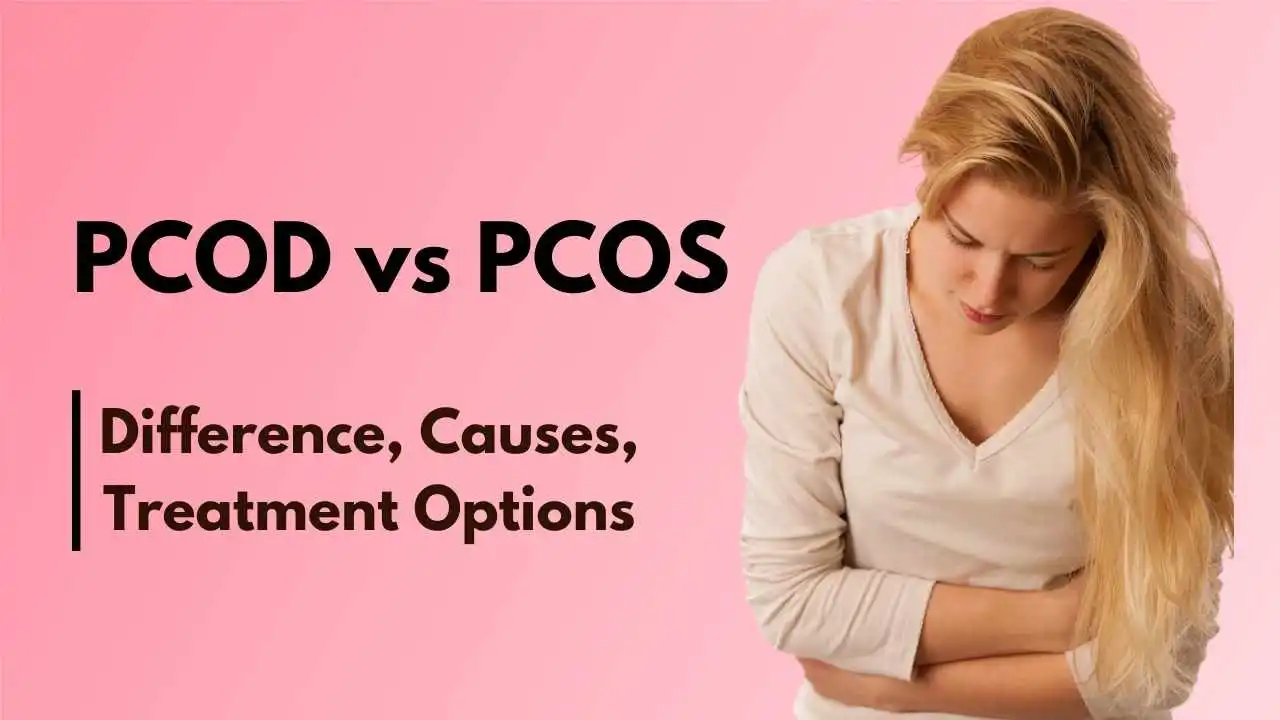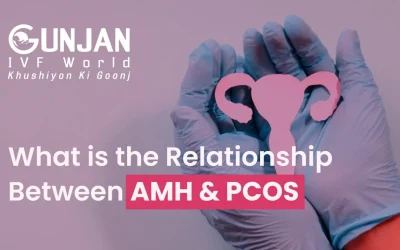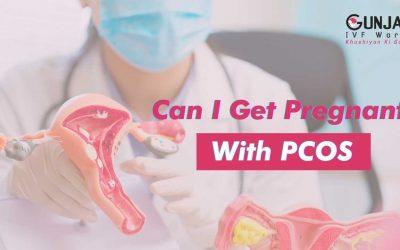Overview
Are PCOD and PCOS relative terms? Lots of women are confused about the difference between the two, often using the words interchangeably, particularly when attempting to comprehend the relationship between PCOS and PCOD, which is a common occurrence.
Despite the similarities, such as the fact that both disorders are connected to the ovaries and cause hormonal disruptions, the truth is that they are quite different.
Now, let’s take a deeper glance at these two situations and see what distinguishes them.

What is PCOD?
PCOD is a condition in which the ovaries develop and release an abnormally high number of immature eggs throughout the ovulation cycle, resulting in irregular menstrual cycles. As a result of the eggs being caught within the ovary, the number of eggs produced for months increases.
Cysts are formed in the ovary by partly developed and stored eggs in the ovaries, even though this may seem to be innocuous. These cyst-like formations in the body also boost androgen production.
What is PCOS?
PCOS is the one most diagnosed medical condition. It occurs when the body’s hormones are out of whack. It’s easy to confuse this with PCOD, which has a similarly ambiguous meaning. The cyst growth in the ovaries does not necessarily cause the hormonal imbalance in PCOS.
When it comes to PCOS, women between the ages of 12 and 51 are most at risk. PCOS directly correlates with infertility, partly because it causes ovulation abnormalities to become more common. According to new findings, infertility is the primary cause of women’s fertility problems, especially in India.
Difference between PCOD and PCOS
PCOS is a debilitating illness that may lead to infertility. However, PCOS is a disease of metabolism.
- Factors of Cause
PCOD is a disease caused by a hormonal imbalance, whereas Polycystic Ovary Syndrome is an endocrine system issue. Hormonal imbalances and genetics are thought to be key factors in both diseases.
According to the theory, high amounts of male hormones are thought to inhibit ovaries from generating hormones and eggs correctly. Excessive androgen development has also been related to insulin resistance and inflammation.
- Effects of PCOD/PCOS on Pregnancy
All women with Polycystic Ovarian Disease are not unable to conceive, and it should not be regarded as an impediment to becoming pregnant.
Approximately 80% of the time, women may get pregnant with little help and have an easy pregnancy. Because of the inconsistencies in their hormones, conceiving might be difficult for women with PCOS.
If you want to become pregnant, you’ll need well-balanced hormonal cycles that allow the ovum to discharge and integrate with the sperm after intercourse.
The high amounts of androgens in Polycystic Ovary Syndrome might make conception a problem for those who suffer from it.
Read Also – How to Cure PCOS Permanently?
Causes
Causes of PCOD:
The exact aetiology of PCOD is still unclear. However, the link between PCOD and excessive levels of male hormones (Hyperandrogenism) and low-grade inflammation, excess insulin, and heredity has been shown.
Other variables contributing to PCOD include early menarche, pollution, and unhealthy living.
Causes of PCOS:
The specific aetiology of PCOS has not been discovered. Several factors, such as:
- Increased testosterone levels: Male hormones are released in excess when insulin and luteinizing hormone levels are elevated. PCOS is a result of a disruption in ovulation as a result of this.
- Rise in luteinizing hormone: Males’ pituitary gland secretes luteinizing hormone, which aids in ovulation, the formation of the corpus luteum, and the production of that hormone by males. Male hormones become imbalanced when luteinizing hormone levels rise.
- Increased prolactin levels: Prolactin is a hormone that aids in milk production after childbirth. Hormonal imbalance is caused by an excess in this hormone, which lowers oestrogen levels.
Book An Appointment
Follow Us On
Treatment Options
To treat PCOS and PCOD complications, one must address the numerous signs of the two conditions, such as hormone imbalance or irregular periods, to achieve hormonal equilibrium.
- Surgery
Ovarian drilling is a laparoscopic procedure for removing ovarian cysts that secrete hormones associated with masculinity in women. Women who have tried and failed to find relief from fertility-related issues may consider laparoscopy as a last resort. Cancerous cysts and endometrial cancer warrant hysterectomy.
- Fertility treatment
IVF (In vitro fertilization) and artificial insemination are fertility therapies for women with PCOS or PCOD. Embryos are implanted into mothers’ wombs after the egg has been fertilized in a laboratory using sperm. PCOD or polycystic ovary syndrome patients whose drugs and surgeries have failed will have this option as their last resort.
20+ Years Of Experience as Fertility Specialists
20 Years Of Experience as a Fertility Specialists
National Fertility Awards 2023
Call Us
+917042874533
FURTHER READING
When to See a Doctor
See a doctor if you experience the symptoms of PCOD and PCOS such as heavy bleeding, infertility, irregular periods, obesity, abnormal weight gain, acne on the face or body, cysts in ovaries, Hirsutism, missed periods (Amenorrhea), and pelvic pain.
Our ratings
Conclusion
It is important to maintain excellent health to prevent and cure hormonal imbalances and illnesses. The most effective therapy for PCOD and PCOS is early identification and taking the necessary measures to conquer the illness and enable the route to a successful pregnancy.
Share this with
Related Blogs
What is the Relationship Between AMH and PCOS?
Polycystic ovarian syndrome (PCOS) is a hormonal disorder that affects women of reproductive age. It is characterized by menstrual irregularities, cysts on the ovaries, and high levels of testosterone.
Can I Get Pregnant With PCOS?
If you have been diagnosed with PCOS, you may be wondering if you are still able to get pregnant. The good news is that most women with PCOS can still conceive a child, but there are some things that you need to keep in mind.
Follow Us On
About Author










Can pcod cured completely
Yes, it can be managed. Please schedule an online appointment with our fertility specialists at +919990044555 to understand the next steps.